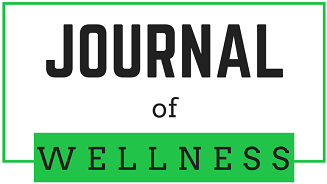
Funder
This publication [or project] was supported, in part, by the National Center for Advancing Translational Sciences of the National Institutes of Health under Grant Number UL1 TR001450. The content is solely the responsibility of the authors and does not necessarily represent the official views of the National Institutes of Health.” This research did not receive any specific grant from funding agencies in the public, commercial, or not-for-profit sectors
Conflict of Interest
The author(s) have no conflict of interest to declare for this work
Abstract
Introduction: Physician well-being has become increasingly important for health systems across the country due to the strong ties between quality, safety, and overall patient outcomes. Burnout has increased steadily and has been exacerbated by the COVID-19 pandemic. This study seeks to successfully identify factors that both enhance and detract from well-being in a cohort of pediatric faculty and advanced practice providers (APPs).
Methods: This study utilized a multimethod approach including surveys and a total of 8 semi-structured, virtual focus groups of pediatricians and advanced practice providers (orchestrated through Microsoft Teams) to understand perspectives on burnout and well-being. Each group session was scheduled 2-3 months in advance to allow for maximum participation.
Results: A total of 83 physicians and APPs participated in the focus groups. The majority of respondents were female, white, aged 31-50 years, and married with children living at home. When asked about current level of burnout, the most frequent response was 8 out of 10 (10 as highest, mean 5.5, std 2.5). Factors associated with higher burnout: outpatient providers (compared to inpatient) (p = 0.0361), female gender (p = 0.0127), and those without a mentor (p = 0.0021). Multiple factors were identified that improved and detracted from well-being. Well-being was positively impacted by the shift to telework practices and increased autonomy in scheduling and focus on self-care. Well-being was reduced by a perceived disconnect from leadership, lack of control, and societal influences and expectations.
Conclusion: This study provides insight into modifiable factors that affect well-being at an academic institution that can support interventions and systemic modifications to promote physician well-being.
DOI
10.55504/2578-9333.1171
Recommended Citation
Marvin, Whitney; Harvey, Jillian; and Ruth, Natasha
(2023)
"Barriers and Facilitators to Achieving Well-being in Pediatric Providers,"
Journal of Wellness: Vol. 5
:
Iss.
1
, Article 6.
DOI: https://doi.org/10.55504/2578-9333.1171
Available at:
https://ir.library.louisville.edu/jwellness/vol5/iss1/6
Included in
Interprofessional Education Commons, Medical Humanities Commons, Pediatrics Commons, Psychiatric and Mental Health Commons, Quality Improvement Commons, Telemedicine Commons
